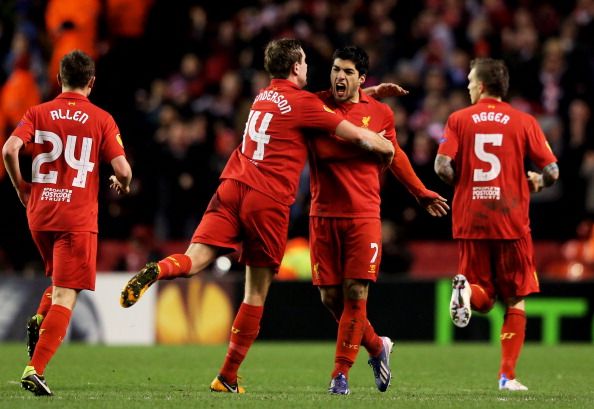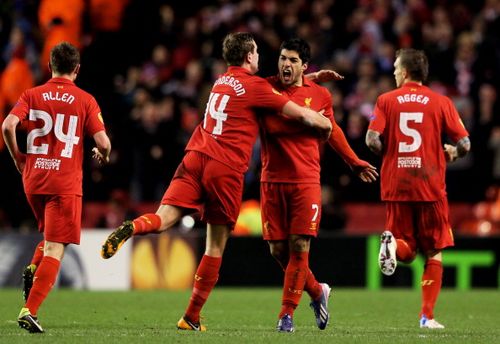
Liverpool season 2012-13: Still in transition

About a year ago, shortly after the appointment of Brendan Rodgers, I wrote that Liverpool needed evolution, not revolution. The departure last summer of club legend Kenny Dalglish was a difficult one, particularly for older fans who still have fond memories of his glorious first tenure as manager at the club, as well as a distinguished playing career that saw him regarded as one of the all time greats of the game.
However, after some high profile signings and a disappointing league campaign, it was clear that some changes were needed and Liverpool’s owners decided that the management team was it.
However, I felt the disappointment could be somewhat balanced against the promising young players coming through the ranks at Anfield and some of the talent that was already in the squad. I also believed that with a few smart ins and outs, progress could be made; albeit slow and steady in the absence of the financial backing of Man City or Chelsea.
Whilst Liverpool passed the ball under Dalglish, the 4-3-3 shorter passing philosophy of Rodgers was clearly evident from the onset and their performance against Gomel in the early stages of the Europa League gave fans some optimism ahead of a tough run of opening Premier League fixtures.
However, individual mistakes became an all too familiar theme in the first few months of what was a stuttering League campaign. Despite some impressive performances, those mistakes were costing goals and points, leaving the Reds in the wrong half of the table and Brendan Rodgers under no illusion of just how magnified the focus is on a club the size of Liverpool.
Club record signing, Andy Carroll, had been sent to West Ham on a season long loan and failure to seal deadline day targets meant the club started with just 2 recognised senior strikers. One of them, newly recruited Fabio Borini, was struggling to adapt and got injured. This meant Luis Suarez would be under further pressure to deliver the goals, but deliver them he did.
Youngster Raheem Sterling, with his blistering pace and trickery, was quickly making a name for himself and having to be relied upon as Liverpool began to tighten up at the back and improve their results.